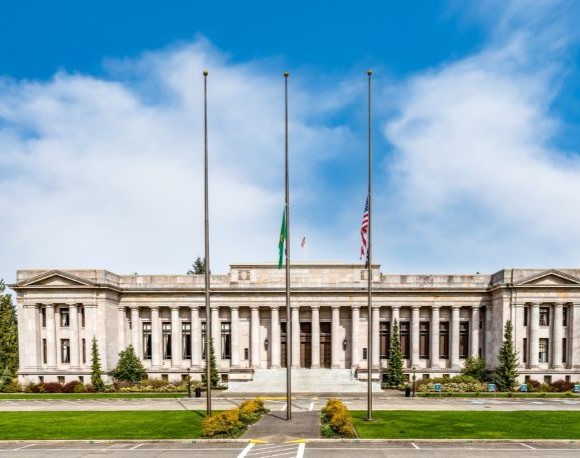June 2, 2025
Three important court cases were recently released that could impact the homebuilding industry: two in the Washington State Supreme Court (WASC) and one in the US Supreme Court (SCOTUS).
BIAW Associate General Counsel Sydney Phillips reviewed these cases and shared her analysis.
Cockrumv. C.H. Murphy/Clark-Ullman, Inc., WASC (7-2, Mungia not participating)
In this case, WASC overturned 30 years of precedent regarding employers’ immunity from lawsuits for workplace injuries. Generally, under Washington's Industrial Insurance Act (IIA) workers receive compensation without regard to employer fault and employers are immune from lawsuits arising from workplace injuries.
Here, the court overturned Waltson v. Boeing Co. (2014), concluding that in latent disease cases, like mesothelioma from asbestos exposure, virtual certainty is sufficient to prove employer actually knew the injury was certain to occur. The Court limited this decision only to latent injuries. Plaintiffs must still prove actual knowledge for immediate and visible types of injuries. It’s important to note that Alcoa at times did not provide any form of personal protective equipment or PPE, exacerbating the plaintiff’s likelihood of being diagnosed with mesothelioma.
It is important for our members who work with hazardous substances (such as asbestos, lead, silica, volatile organic compounds (VOCs),and other chemicals used in paints, glues, solvents, and fuels) to ensure that they provide information, make sure employees have PPE and take all safety measures available to protect their employees. Latent diseases lawsuits in Washington are now a risk to all employers working with hazardous substances.
Dep’t of Lab. & Indus. v. Cannabis Green, LLC, WASC (8-0, Mungia not participating)
WASC determined that LNI is not required to issue a formal administrative or director’s order that directs an employer to pay a predetermined sum certain before they sue the employer to recover wages owed to its employees plus statutory double damages and attorney fees. LNI can now satisfy its obligation to “order the payment of all wages owed the workers” (RCW 49.48.040) in other ways such as informal directives to comply with relevant labor laws, even without specifying the exact sum owed.
It is important for our members with employees to comply with all relevant wage and hour laws, especially when being investigated by LNI. LNI can now simply inform an employer that they are violating wage and hour laws without providing a specific dollar amount then bring suit for those wages, double damages, and attorneys’ fees.
Because both of these cases deal with state-specific issues, they are not good candidates to appeal to the US Supreme Court so these rulings will stand. Employers should adjust accordingly and protect themselves from liability.
In this case, SCOTUS determined that federal agencies and boards must receive judicial deference under the National Environmental Policy Act(“NEPA”). The court ruled, NEPA is a “purely procedural statute, [and it] ‘does not mandate particular results, but simply prescribes the necessary process’ for an agency’s environmental review of a project.”
Federal courts should no longer take an “aggressive role” when policing agency compliance with NEPA. Judicial deference in NEPA extends to an agency’s determination of what details are relevant in an Environmental Impact Study (“EIS”).
“NEPA does not allow courts, “under the guise of judicial review” of agency compliance with NEPA, to delay or block agency projects based on the environmental effects of other projects separate from the project at hand.”
This case is a follow-up of Loper-Bright. SCOTUS confirms that while the Courts have the power to review agency final decisions under NEPA, they must still defer to the agency’s determinations, including its EIS. Members working on projects involving federal agencies/NEPA should be aware that Seven County confirms that NEPA is to be a “procedural cross-check, not a substantive roadblock.”
Questions about these cases? Reach out to Sydney!








